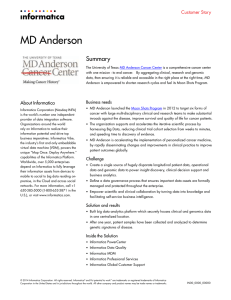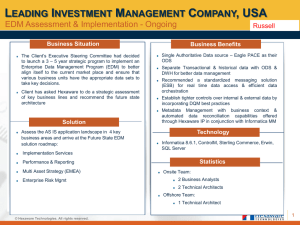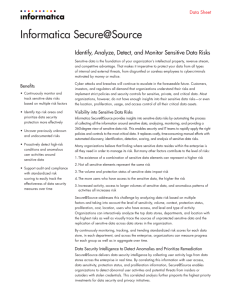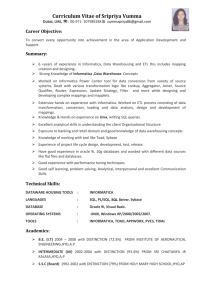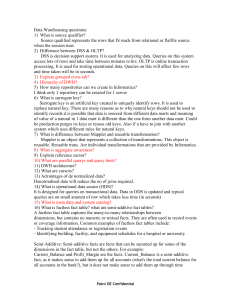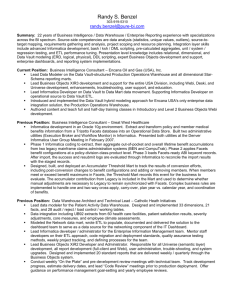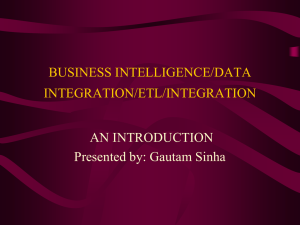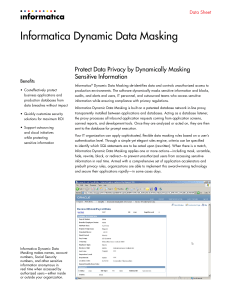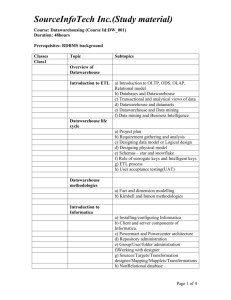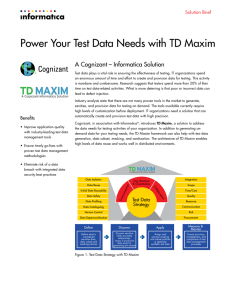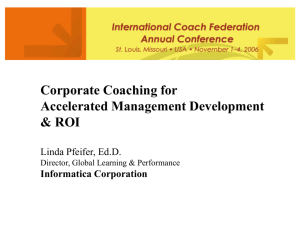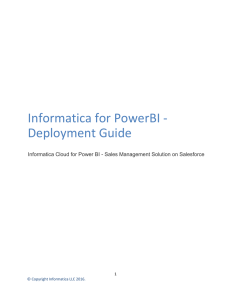Details - IndusTribe Services
advertisement
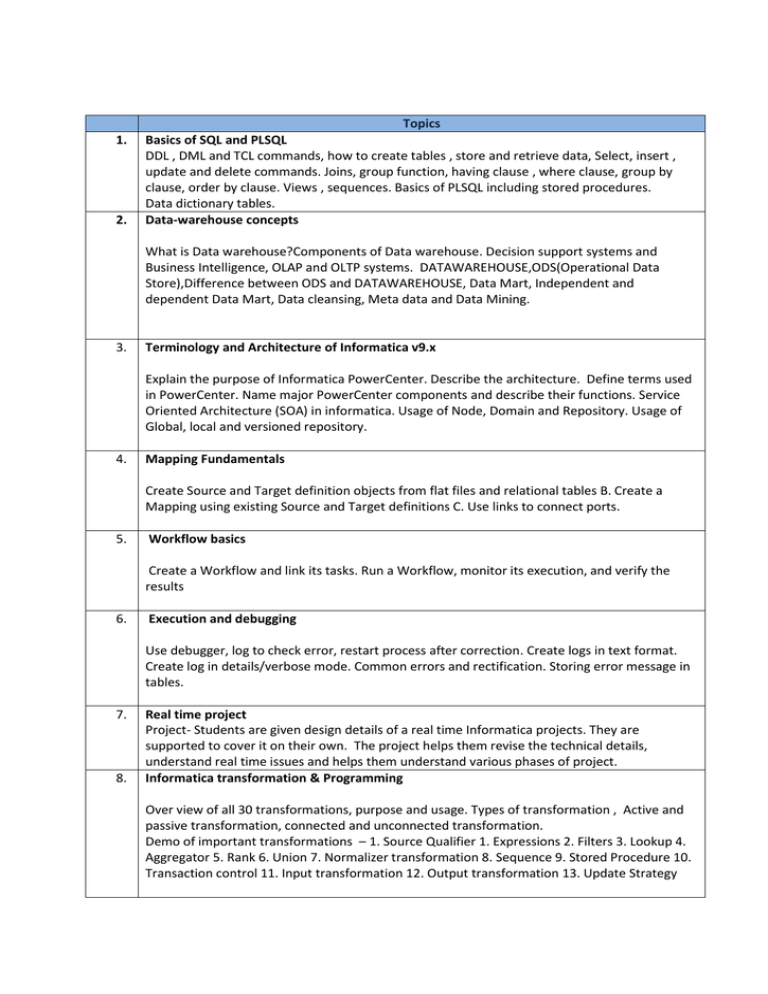
1. 2. Topics Basics of SQL and PLSQL DDL , DML and TCL commands, how to create tables , store and retrieve data, Select, insert , update and delete commands. Joins, group function, having clause , where clause, group by clause, order by clause. Views , sequences. Basics of PLSQL including stored procedures. Data dictionary tables. Data-warehouse concepts What is Data warehouse?Components of Data warehouse. Decision support systems and Business Intelligence, OLAP and OLTP systems. DATAWAREHOUSE,ODS(Operational Data Store),Difference between ODS and DATAWAREHOUSE, Data Mart, Independent and dependent Data Mart, Data cleansing, Meta data and Data Mining. 3. Terminology and Architecture of Informatica v9.x Explain the purpose of Informatica PowerCenter. Describe the architecture. Define terms used in PowerCenter. Name major PowerCenter components and describe their functions. Service Oriented Architecture (SOA) in informatica. Usage of Node, Domain and Repository. Usage of Global, local and versioned repository. 4. Mapping Fundamentals Create Source and Target definition objects from flat files and relational tables B. Create a Mapping using existing Source and Target definitions C. Use links to connect ports. 5. Workflow basics Create a Workflow and link its tasks. Run a Workflow, monitor its execution, and verify the results 6. Execution and debugging Use debugger, log to check error, restart process after correction. Create logs in text format. Create log in details/verbose mode. Common errors and rectification. Storing error message in tables. 7. 8. Real time project Project- Students are given design details of a real time Informatica projects. They are supported to cover it on their own. The project helps them revise the technical details, understand real time issues and helps them understand various phases of project. Informatica transformation & Programming Over view of all 30 transformations, purpose and usage. Types of transformation , Active and passive transformation, connected and unconnected transformation. Demo of important transformations – 1. Source Qualifier 1. Expressions 2. Filters 3. Lookup 4. Aggregator 5. Rank 6. Union 7. Normalizer transformation 8. Sequence 9. Stored Procedure 10. Transaction control 11. Input transformation 12. Output transformation 13. Update Strategy 9. Programming options in Informatica Data-types conversion in informatica, Functions –Character, Conversion, Data Cleaning, Date, Encoding, Financial, Numeric, Scientific, Special, Test, User Defined functions Using function, variables and ports to write appropriate code. Finding dependency and impact analysis before change on objects. 10. Updating Target Tables Use an Update Strategy transformation to determine how the Target should handle records(insert, update, delete) 11. Mapplets and Worklets Describe and demonstrate purpose and usage of mapplet and worklet. 12. Tasks in workflow manager Decision, Control, Timer, Event wait, Event Raise, Assignment, Command, 13. Advanced topics Using parameters and variables Cache management Informatica Administration overview - Installation of a new instance of Informatica repository, Creating service and Integration service, user management. Informatica metadata tables. Moving informatica objects from development to QA and production environment. SCD - Using Informatica for creating Slowly changing dimensions Type I, Type II and Type III. Best practises and performance tuning. Informatica Data-migration project--Phases of project, tasks for developers and lead and project manager in project. --Documents to be created during project (ETL Process diagram, Business Requirement document, mapping specification, ETL object migration request document, test plan document, ETL naming convention document, peer review document. -- Estimating time required to complete a Informatica task. Total hours: 40hr Pre-requisite – Candidate should have hands on knowledge of SQL. Training materials given to candidates – 1. Power point presentations related to course topics coverage – 20 ppts each 10 pages These are presentations shown during the sessions. Students can use them during revision. Sample - Create a map.pptx 2. Informatica programs (maps and workflow) – 20 xml file along with SQl scripts These are copy of programs which are created or displayed during sessions. Students can run them on their machine during revision. 3. Documents created during project – 5 These are the documents referred or created during projects. Students can use them in their projects. ETL Process Definitions And Deliverables.doc Sample-
